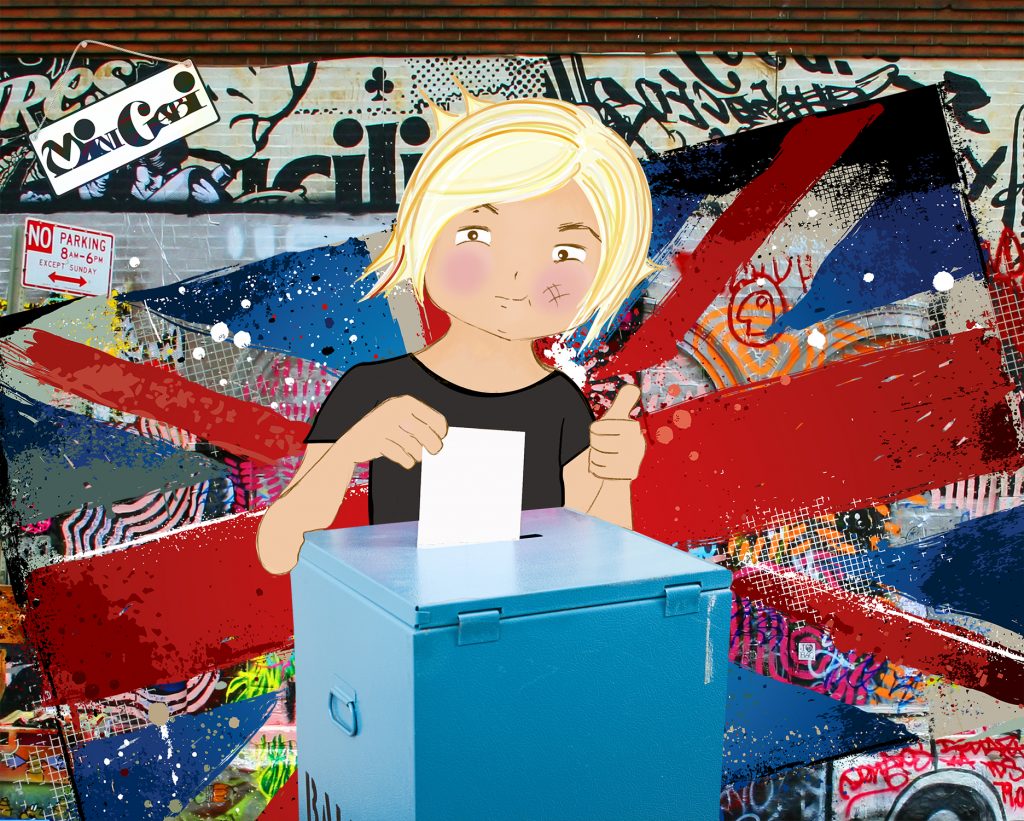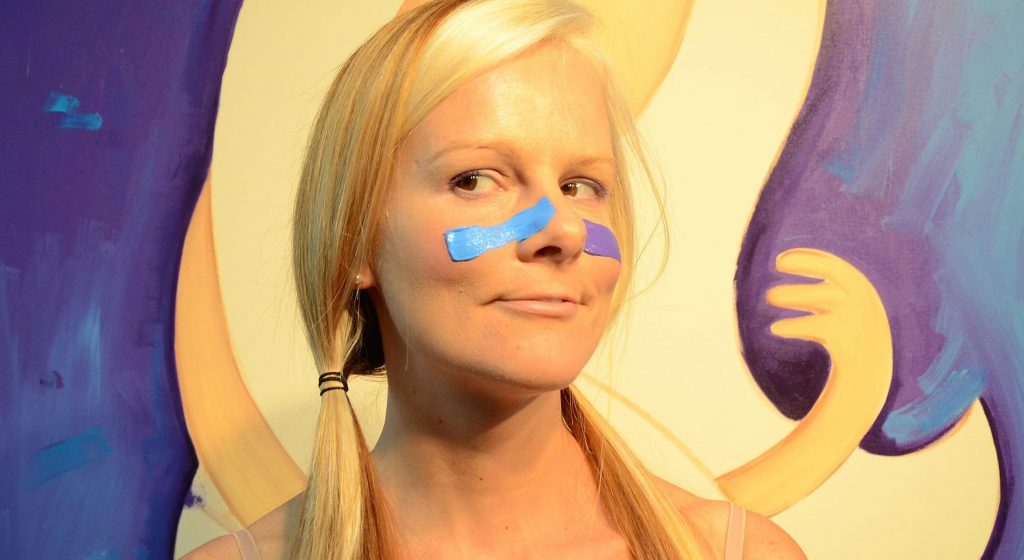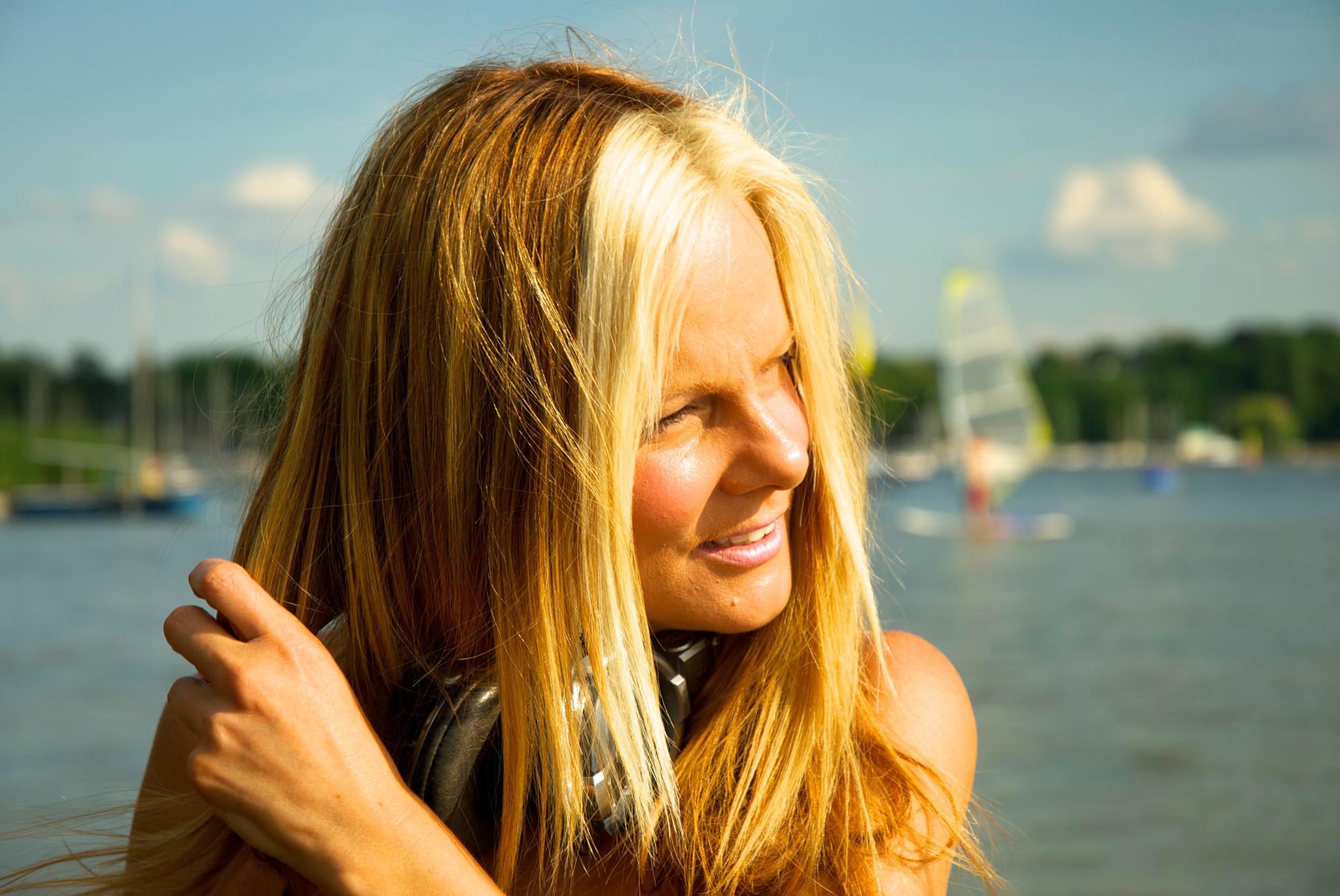Gabi Almeida, 37, is a women’s rights activist and artist who moved from Brazil to the UK more than a decade ago. As well as creating a range of mini-cartoons in her own image, she also records and produces dance music.
“I’m originally from Brazil and the surreal thing is that voting here is obligatory, so it took quite a long time to see that it was actually something that was a democratic part of my life. I took it for granted, I didn’t like it that I was obliged to vote in my country. It was only when I came to the UK that I saw things could be different.
“When I moved to the UK I saw that things like human rights and women’s rights are a lot more developed, a bit more ahead of Brazil, and it was a really nice surprise for me to experience. I think it’s really good to have influences and references from other places. In Brazil, we got the vote a little bit later for educated women, and then later for all women. It was really nice to realise that things can be more equal and democratic. When you are in that environment you can take that with you when you travel back. When I got my British citizenship I was really proud to be part of a country that had the choice.”
‘Anything in Life, You Should Be Able to Decide, Especially With Voting’
 Image Credit: Gabi Almeida
Image Credit: Gabi Almeida
“Anything in life, you should be able to decide, especially with things like this. Sometimes, for whatever reason, you should be able and entitled to decide you might not want to vote. There are some circumstances in your family, or you are travelling, or whatever. I don’t like the fact that you were obliged or they make your life really difficult if you don’t vote. So I really like this in the UK.
“When I first got my British citizenship I never used to vote because I didn’t feel that, although I was politically qualified, I didn’t know enough about British history and British society because I had only been here for five, six years. It’s funny, but I didn’t feel like I should by adding my voice. I felt like it was more for the people who had lived there longer.
“It was only later I felt, okay, I’ve lived here long enough. They welcomed me to the country for the better and for the good and I also bring and contribute to the economy, so then I decided it was a very important thing for me. Now for me, even in the last year, I voted when I was in Berlin. It was really lovely, I made a point to sign up for the postal vote.
‘I Never Understood Why You Lose Your Right To Vote’

Image Credit: Gabi Almeida
“One thing I never understood and I still don’t, it seems to me in England, you lose the right to vote if you are out of the country. I spend a lot of time travelling in Europe and I met a lot of ex-pats there who didn’t have the right to vote for Brexit, for either leave or remain, which was something which would directly influence them. That was surreal for me, in Brazil you have a vote for life. All these contradictions that make sense and don’t make sense.
“For me, today, whatever I am allowed do to express my voice, I will. I think a lot of people fought for that, there are so many things in the world that are unequal, so why ignore the things that we can already do? We should make the most of them, celebrate them and fight for rights we don’t have. We come from a generation where we didn’t have to fight for this right, perhaps we don’t have the feeling of what it would be like to not have a voice – only your husband or your father or whatever. Just trying to imagine that. The more we are human beings instead of men or women – that’s better for everyone I think.”
On the 6th of February 1918, the Representation of the People Act received Royal Assent. For the first time, women were allowed to vote in elections. However, women could only exercise their rights if they were over 30 and met certain other requirements about property. It would be a further ten years before full suffrage was achieved.
All this week RightsInfo is sharing the stories of modern women and their right to vote. We all have a right to take part in free and fair elections – it’s part of our human rights.







